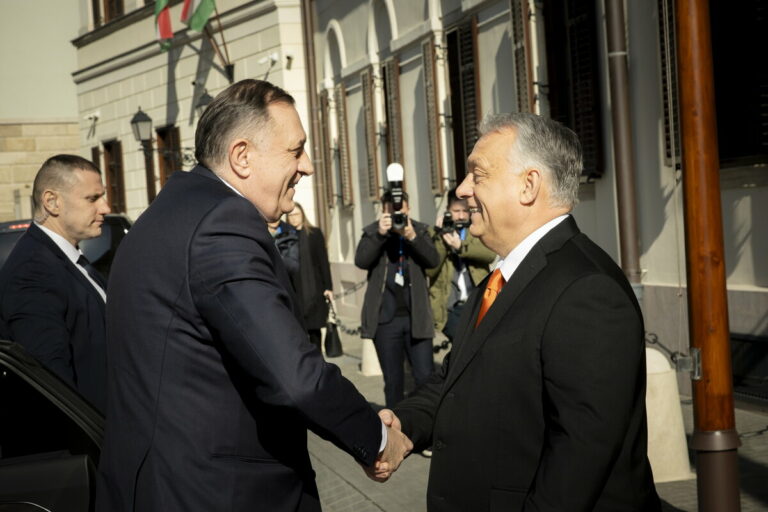Serbia
Serbia, Hungary agree on boosting military cooperation

Shocking: A Hungarian region struggles with the lowest life expectancy at birth in Europe

Hungarian government claims Milorad Dodik victim of ‘witch hunt’

Milorad Dodik faces jail time: He claims PM Orbán sent 300 CTC agents to Bosnia to train with Serbian counter-terrorism

Tisza leader Péter Magyar lays flowers at Novi Sad railway station in Serbia

Vucic’s Serbian nationalist party declaration denies historical Hungarian ties to Vojvodina

Huge protests in Serbia, Vucic honoured in Budapest

BREAKING: Hungary and Serbia to build joint oil pipeline

President Sulyok hails Hungary’s border protections

How do Hungary’s neighbours see the country? New survey reveals surprising trends

Year of Culture started in the Carpathian Basin

PM Orbán: new energy crisis looming, so he travelled to Serbia

Hungary becomes regional distributor of Russian gas, generating windfall revenues

Hungary and Serbia to boost energy cooperation with strategic investments

Hungarian foreign minister slammed Biden administration for sanctions endangering C Europe
Huge construction project begins on Hungary’s southern border

Southern Hungarian border crossings have fallen, waiting time about 2 hours





 ZH
ZH IT
IT DE
DE HR
HR NL
NL FR
FR JA
JA RO
RO RU
RU ES
ES TR
TR
